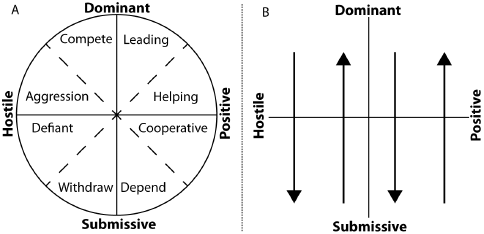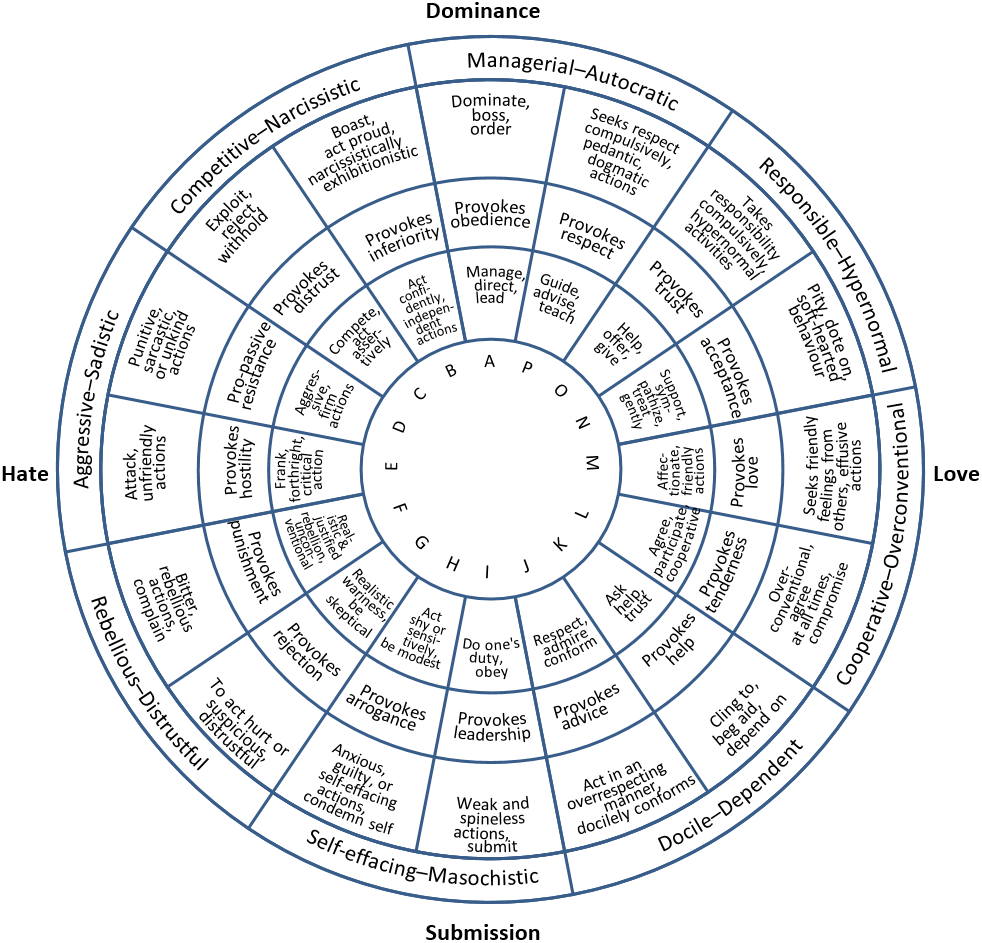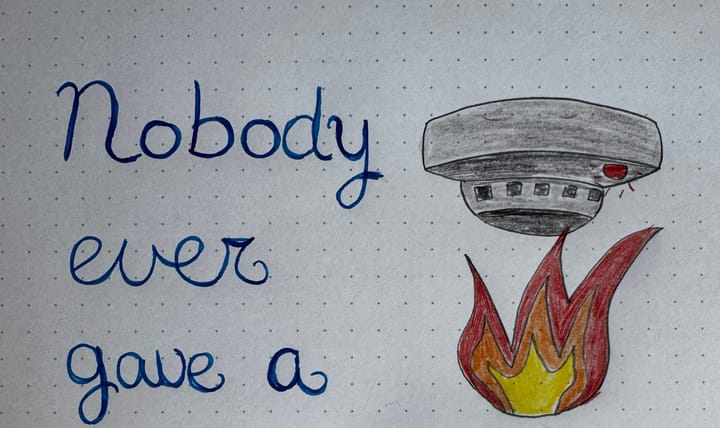The many personalities of a software tester
I just had a weird insight that I want to share with you. Before I can share it, I must first explain the model that the insight was about.
Have you ever heard of the Interpersonal Circumplex? It is a model to assess interpersonal behaviour, traits and motives of people.
The vertical axis is about status, dominance, power.
The horizontal axis is about agreeableness, compassion, warmth.
You could make it even simpler and say that the vertical axis is about agency.
The horizontal axis is about communion.

Not one person can be placed on only one point in this model. You can do a personality test to find out how you place on the model, which looks something like this (this is not my result, just an image from the internet).

There is one more thing you need to know. The further you are on the poles of the axes, the more extreme your behaviour or personality is in that regard.
This is an extremely oversimplified explanation, but this is all you need to know to understand my insight. As always, this is a model and models are always wrong, but they help us think about things conceptually.

Let’s look at this version of the model (the picture above or open the link) from a work-related context, without doing the test. A test gives a nice snapshot result, but our personalities aren’t set in stone.
I can be in the bottom left part of the model. I can be incredibly sceptical, and I’ve been known to provoke a manager every now and again. In truly bad times, I can absolutely slide to the pole of the axis and go in full-on rebellion. Or: I just retreat. My fucks to give are gone and I’m withdrawn completely.
Yet, I can also operate at the opposite of this, and that is the place I’d rather be: working together with others, helping, guiding, supporting. This makes me so much happier as a tester, to feel that I’m part of a bigger whole.
There are also parts of the model where I never operate: I’m not docile (lol) and I’m also not competitive or narcissistic. I fear I can be perceived as aggressive at times, that would be me at my worst (which I hope people rarely have to experience).
The obvious question is of course: why am I like I am, at times?
The insight (*insert wooooo sounds*)
The answer to that why is of course: the work environment.
I truly believe that our personalities at work can change depending on the context, the environment we operate in. Is it supportive? Collaborative? Do you have allies? Is your team an actual team and not a bunch of individuals lumped together? Are you happy at work? Do people act on the things you find out and take your concerns on board?
Or: are you not believed as a tester? Are your contributions not taken seriously? Do you have to fight for the bugs (or issues, or problems) you found to be taken seriously? If you raise concerns about issues on an organisational level that threaten the quality of the product, do people ignore you?
In those good situations I’ve been mostly in the top-right part of the model. Helping other people, working together (pair programming, pair testing, group testing), sometimes guiding other people (teaching developers more about testing, for example).
Unfortunately, I’ve also been in shitty work environments and that’s when my bad side slowly comes out. I grow defiant, I withdraw, I become grumpy, I become cynical. This is NOT where I want to be. I often start in those situations with hope, like a flower in bloom, but starve a flower of water and it slowly withers. And I can feel myself slide to the dark side, slowly but surely, over the course of months. This is what personally happens to me when I feel that my work is not taken seriously, or if it seemingly doesn’t matter what I do, when I feel my presence makes zero impact on the outcome. This is when I quit my job because life is too short to feel so shitty because of work.
This is the last part of the insight I want to share with you: I think that many companies want testers to be in the bottom-right of the model. They want testers to be cooperative, yet submissive. Please testers, crank out your test cases, automate all the things, but don’t be too critical and thorough so you don’t threaten the self-imposed deadline, thank you very much. Don’t even think about trying to become dominant and lead the company to greener pastures (testing-wise), you silly goose. Back in your corner, shoo!
Well, that was it. That was my insight. Shoot on it all you want.



Comments ()